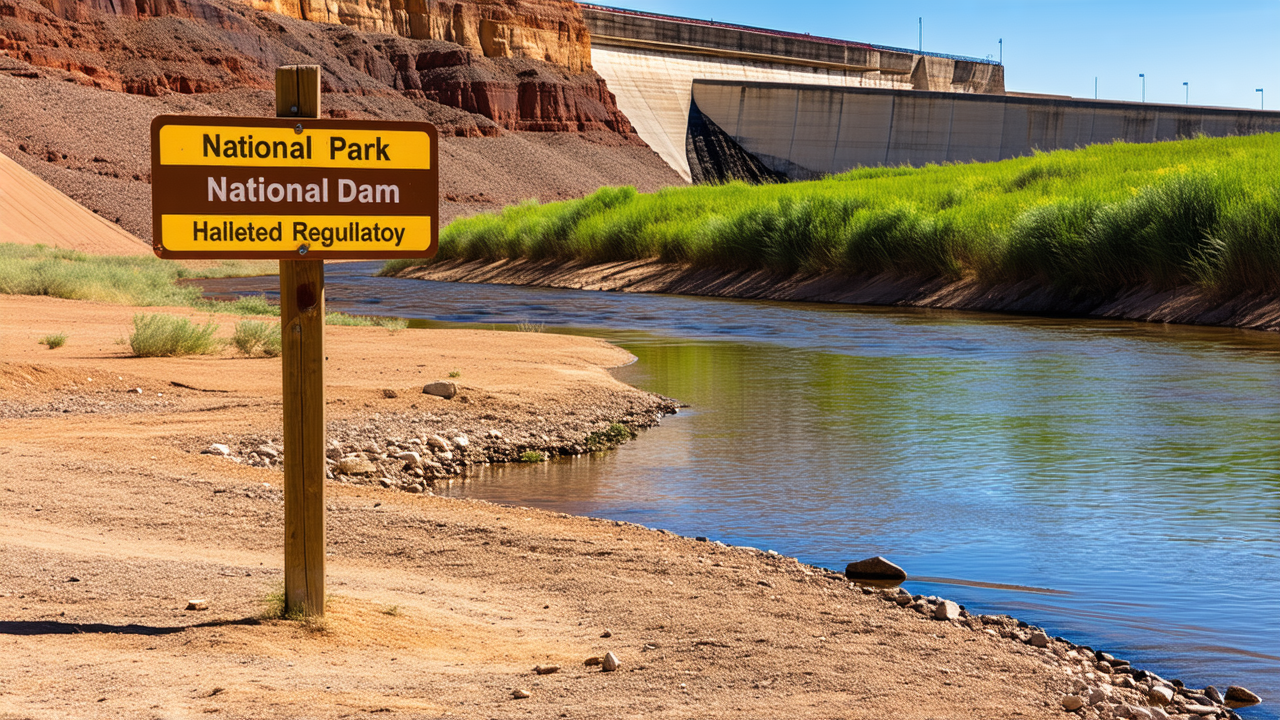Environmental Water Flows at Toorale National Park Halted Over Reporting Concerns
Environmental Water Flows at Toorale National Park Halted Over Reporting Concerns
In a move that has sparked debate across the region, the NSW Natural Resources Access Regulator (NRAR) has issued a stop-work order halting environmental water flows at Toorale National Park. The decision comes after concerns were raised about the park's failure to meet its reporting obligations under its water licence.
The Boera Dam river regulator, located in Toorale National Park, was constructed by the NSW government to manage water flows and ensure environmental outcomes. However, the NRAR has now ordered a temporary halt to these operations, citing the lack of required documentation and transparency.
NRAR chief regulatory officer Grant Barnes explained that the regulator has been investigating the park’s operations for the past 12 months. He stated that the regulator has conducted an exhaustive evaluation and is confident that the park must now fully account for its water usage in line with its licence to meet public expectations.
According to Barnes, the issue lies in the park’s failure to record water flows, as this was not stipulated as necessary in an operational maintenance plan. To resolve this, the park’s operator—the NSW Department of Climate Change, Energy, the Environment and Water (DCCEEW)—must comply with the NRAR’s stop-work order.
Toorale National Park, which is situated at the junction of the Darling and Warrego rivers, was purchased by the Australian and NSW governments in 2008 for $24 million. Prior to this, it had been a sheep and cropping station. The park was originally intended to help return water to the Murray-Darling river system, a goal that has been a focus of debate and scrutiny in recent years.
A spokesperson for DCCEEW confirmed that the department is fully cooperating with the NRAR’s investigation and is open to any recommendations that will improve the transparency and effectiveness of its operations. However, they have not yet commented on the specific impacts of the stop-work order on the region’s water management.
Despite the stop-work order, the regulator has stated that there is no evidence that Toorale National Park has exceeded its annual water entitlement of 17 gigalitres. Hydraulic models have indicated that approximately 3,000 megalitres of water have been diverted to the Western floodplain over the past two and a half years, and the NRAR believes the park has been managing its water use appropriately.
The stop-work order, however, is not related to an ongoing Independent Commission Against Corruption (ICAC) inquiry into the park’s management, which was referred by state MP Roy Butler. The NRAR has stated that the investigation into the park’s operations is separate from any potential corruption allegations.
While some local stakeholders have welcomed the move, others have raised concerns. Justin McClure, president of the Australian Floodplain Association, said that the stop-work order is a “step in the right direction” but emphasized the need to return water to the Darling River as originally intended. He also called for a shift away from prioritizing environmental assets upstream.
Maryanne Slattery, an independent water researcher, pointed out that the NRAR is holding the government to a higher standard than it is holding irrigators. By the regulator’s own reporting, only 43% of licensed water holders in the Barwon, Darling and West area are meeting metering rules. She called for greater transparency in how environmental watering is managed in comparison to the treatment of non-compliant irrigators.
In response to these concerns, the NSW government has proposed a series of legislative and policy reforms aimed at improving water governance and ensuring that environmental outcomes are met without compromising the needs of local communities and farmers.
